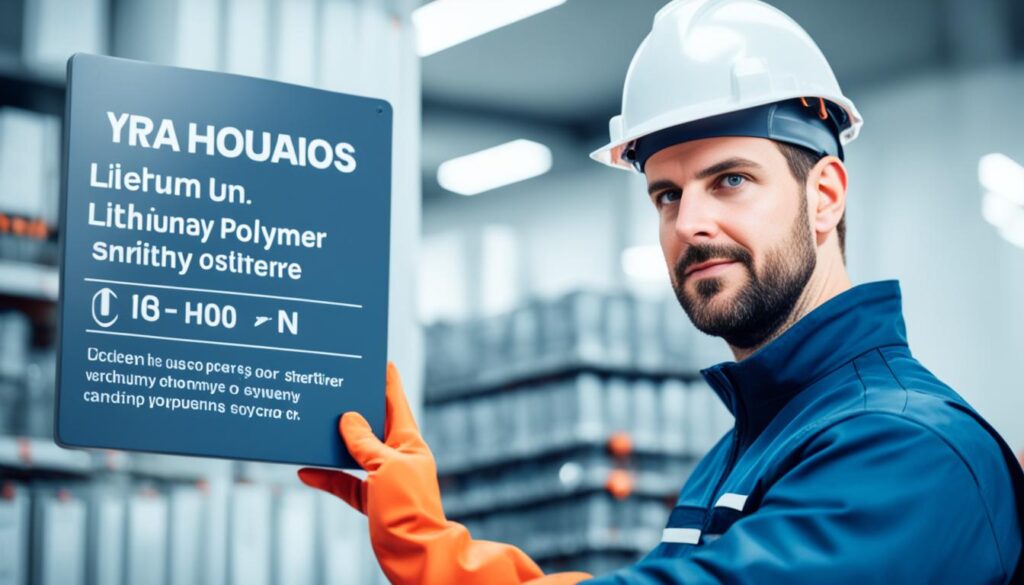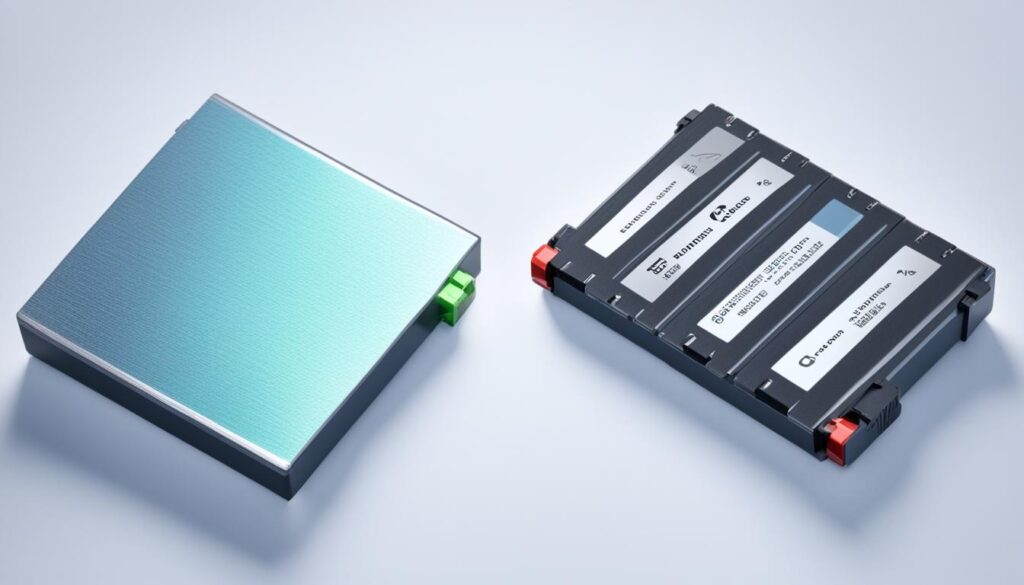When it comes to choosing the best battery for your electronic devices, the options can be overwhelming. Two popular choices are lithium ion vs lithium polymer batteries. Understanding the differences between these two battery types can help you make an informed decision that suits your specific needs.
Lithium-ion batteries are commonly used in portable gadgets and smartphones. They are known for their high energy density, long-lasting performance, and affordability. On the other hand, lithium polymer batteries offer a lower profile and more robust design. They are versatile in terms of shape and size, allowing for greater design flexibility in certain applications.
Factors such as battery life, safety features, and performance should be considered when making a battery choice. Lithium-ion batteries typically have higher energy density and voltage levels, making them suitable for high-power usage. However, lithium polymer batteries provide enhanced safety features, faster charging, and a lighter weight profile.
Key Takeaways:
- Understanding the differences between lithium-ion and lithium polymer batteries can help you make an informed choice.
- Lithium-ion batteries are known for their high energy density and long-lasting performance.
- Lithium polymer batteries offer a lower profile and more robust design.
- Consider factors such as battery life, safety features, and performance when choosing between the two battery types.
- Lithium-ion batteries are suitable for high-power usage, while lithium polymer batteries provide enhanced safety features and a lighter weight profile.
Lithium Ion vs Lithium Polymer: Understanding the Core Technologies
In the world of batteries, two prominent technologies have emerged as the top choices for powering electronic devices: lithium-ion and lithium polymer. Each offers unique advantages and understanding their core technologies is essential in making an informed decision.
The Fundamentals of Lithium Ion Batteries
Lithium-ion batteries have long been the go-to option for portable gadgets and smartphones. These batteries are known for their high energy density, delivering long-lasting performance with a compact form factor. The key component that facilitates the movement of ions within the battery is a liquid electrolyte.
When the battery is charged, lithium ions move from the cathode to the anode. As the battery discharges, the reverse occurs, with lithium ions flowing from the anode to the cathode. This back-and-forth movement of ions is what allows lithium-ion batteries to store and release energy effectively.
One of the major advantages of lithium-ion batteries is their affordability. These batteries have been mass-produced for many years, leading to economies of scale that make them more cost-effective than alternatives.
Exploring the Properties of Lithium Polymer Batteries
Lithium polymer batteries, on the other hand, offer a different approach to energy storage. Instead of using a liquid electrolyte, these batteries utilize a dry solid or gel-like electrolyte. This change in design results in a lower-profile and more robust battery.
Lithium polymer batteries are known for their versatility in terms of shape and size. This flexibility allows for greater design freedom, making them suitable for a wide range of applications, including wearable devices, drones, and electric vehicles.
While lithium polymer batteries may have a slightly lower energy density compared to lithium-ion batteries, they make up for it in other areas. These batteries have a lower risk of leakage and are less prone to swelling or overheating. Additionally, they offer faster charging times, making them an attractive choice for those who need quick power replenishment.
Energy Density and Voltage Considerations
When comes to lithium ion battery vs lithium polymer battery, two critical factors to consider are energy density and voltage.
lithium ion vs lithium polymer energy density – Energy density refers to the amount of energy that can be stored in a given volume or weight of the battery. In general, lithium-ion batteries have higher energy density levels, making them suitable for high-power applications.
On the other hand, lithium polymer batteries offer advantages in terms of design flexibility and shape. This ability to create custom shapes and sizes makes them ideal for devices with specific space constraints.
Regarding lithium ion vs lithium polymer voltage, lithium-ion batteries typically have higher voltage levels compared to lithium polymer batteries. Higher voltage allows for more efficient power delivery, especially in high-power applications where a higher voltage is necessary.
Considering these factors, it becomes clear that both lithium-ion and lithium polymer batteries have their distinct advantages and considerations. The choice between the two technologies ultimately depends on the specific needs and requirements of the device or application at hand.
The Practical Comparison: Safety, Life, and Performance
Battery life and self-discharge rates are crucial factors to consider when evaluating the practical aspects of lithium-ion and lithium polymer batteries.
Lithium-ion batteries generally have a longer lifespan, lasting around 2-3 years or 300-500 charge cycles. They may experience a decrease in storage capacity over time but are less likely to suffer from self-discharge issues.
Lithium polymer batteries have a shorter lifespan but offer fast charging, low self-discharge rates, and enhanced safety features.
Safety features of lithium-ion and lithium polymer batteries differ due to the type of electrolyte used. Lithium polymer batteries have a lower risk of leakage compared to lithium-ion batteries.
The weight implications of choosing between lithium-ion and lithium polymer batteries should also be considered, especially for portable devices. Lithium polymer batteries are generally lighter and more suitable for applications where weight and portability are key factors.

Conclusion
When it comes to choosing between lithium-ion and lithium polymer batteries, the decision ultimately depends on your specific requirements and preferences. Both battery types have their own advantages and disadvantages in terms of performance, safety, and longevity.
Lithium-ion batteries are known for their higher energy density and longer lifespan, making them ideal for high-power usage. They provide a reliable and enduring power source for various devices. On the other hand, lithium polymer batteries offer enhanced safety features, faster charging capabilities, and a lighter weight profile. They are particularly suitable for applications where safety and portability are key considerations.
When making a battery choice, it is important to consider factors such as battery life, self-discharge rates, safety features, weight implications, and the specific needs of your device or application. By understanding the core technologies and practical considerations of lithium-ion vs lithium polymer batteries, you can make an informed decision and select the battery that best meets your requirements.
Whether you prioritize higher energy density and longer lifespan or enhanced safety features and portability, there is a battery out there for you. Take the time to evaluate your needs, consider the pros and cons of each battery type, and make a choice that empowers you to get the best performance and longevity from your devices.
FAQ
What are the differences between lithium-ion and lithium polymer batteries?
There is many differences between lithium ion and lithium polymer. Lithium-ion batteries use a liquid electrolyte, while lithium polymer batteries use a dry solid or gel-like electrolyte. Additionally, lithium-ion batteries have higher energy density and voltage levels, while lithium polymer batteries offer a lower profile, more robust design.
What factors should I consider when choosing between lithium-ion and lithium polymer batteries?
When choosing between lithium-ion and lithium polymer batteries, it’s important to consider factors such as battery life, safety features, performance, weight implications, and suitability for your intended device or application.
Which battery type is better for high-power usage?
Lithium-ion batteries are generally more suitable for high-power usage due to their higher energy density and voltage levels.
Are lithium-ion or lithium polymer batteries safer?
In case of lithium ion vs lithium polymer safety,Batteries differ due to the type of electrolyte used. However, lithium polymer batteries have a lower risk of leakage compared to lithium-ion batteries.
How does battery life compare between lithium-ion and lithium polymer batteries?
Lithium-ion batteries generally have a longer lifespan, lasting around 2-3 years or 300-500 charge cycles. Lithium polymer batteries have a shorter lifespan but offer fast charging and low self-discharge rates.
What are the weight implications of choosing between lithium-ion and lithium polymer batteries?
Lithium polymer batteries are generally lighter and more suitable for applications where weight and portability are key factors.

